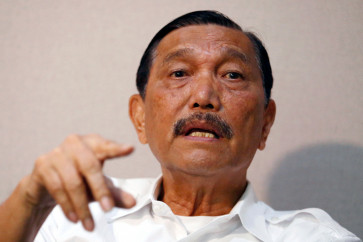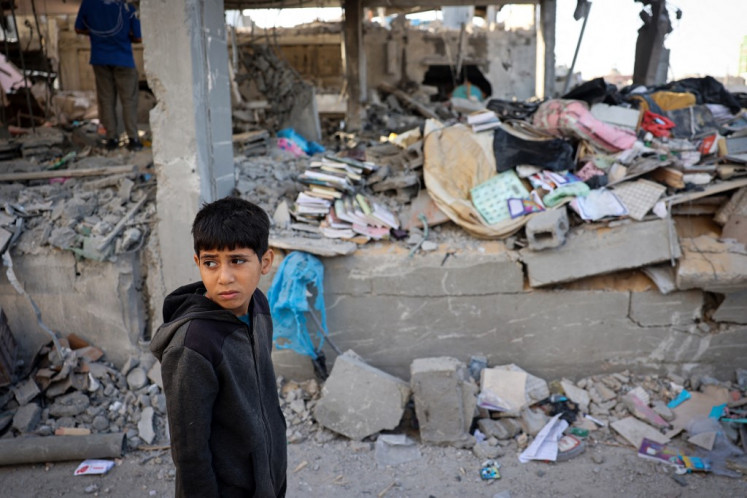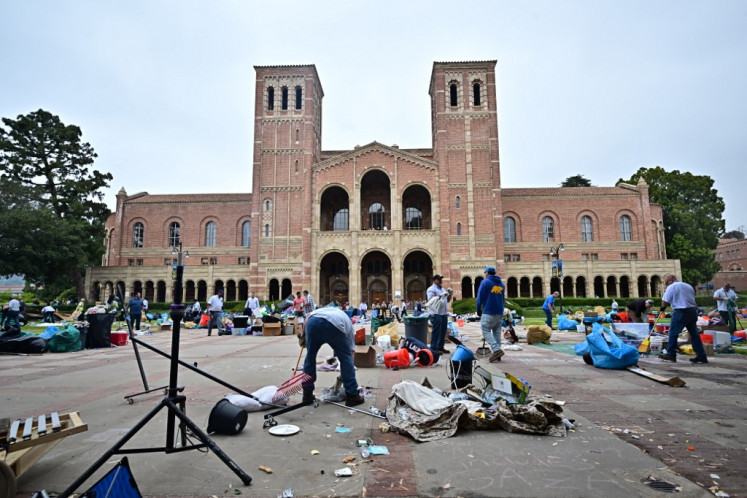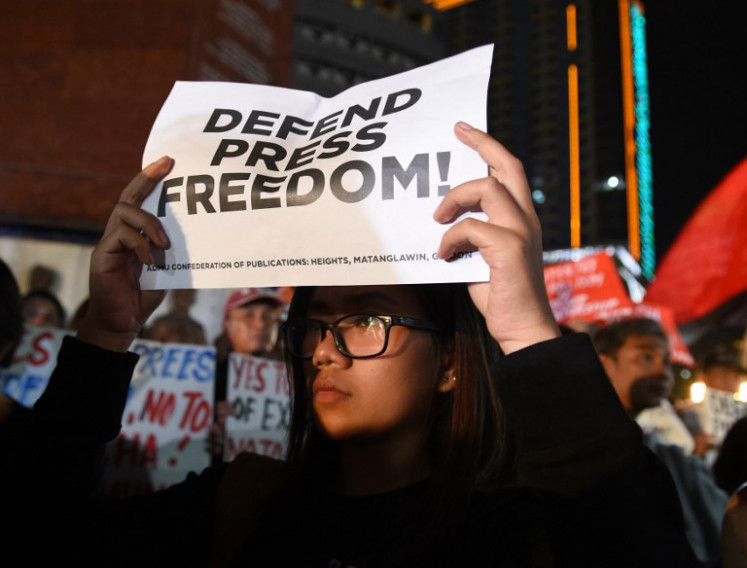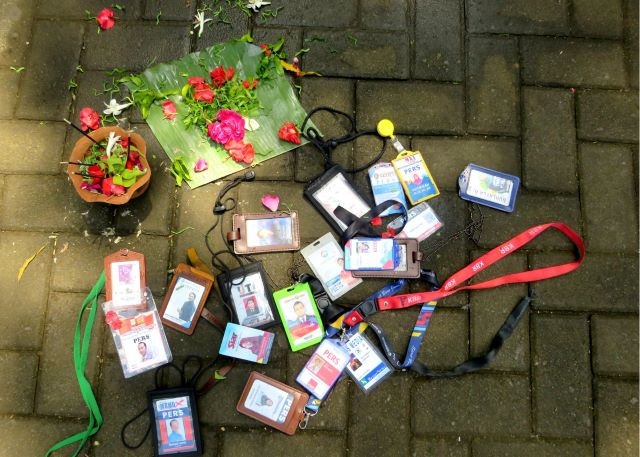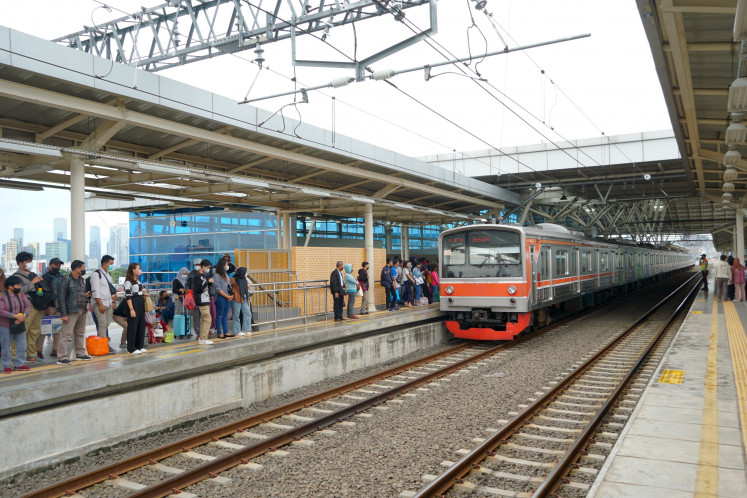Strained US-China ties to dominate Shangri-La Dialogue
The 20th edition of the Shangri-La Dialogue takes place from Friday to Sunday at the Shangri-La Singapore hotel.
Change Size
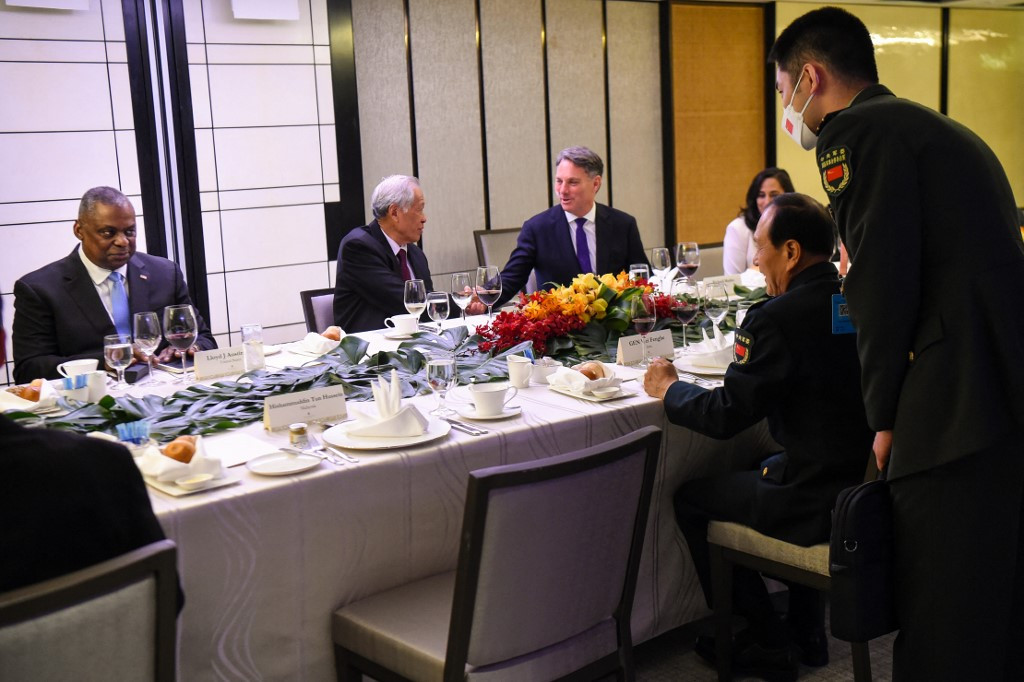 China's Defence Minister Wei Fenghe (right) talks to US Defense Secretary Lloyd Austin (left), Singapore's Defence Minister Ng Eng Hen (2nd L) shakes hands with Australia's Deputy Prime Minister and Minister of Defence Richard Marles, during the ministerial roundtable luncheon at the Shangri-La Dialogue summit in Singapore on June 11, 2022. (AFP/Roslan Rahman)
China's Defence Minister Wei Fenghe (right) talks to US Defense Secretary Lloyd Austin (left), Singapore's Defence Minister Ng Eng Hen (2nd L) shakes hands with Australia's Deputy Prime Minister and Minister of Defence Richard Marles, during the ministerial roundtable luncheon at the Shangri-La Dialogue summit in Singapore on June 11, 2022. (AFP/Roslan Rahman)
T
he increasingly strained ties between the United States and China, and implications for Asia from the continuing war in Ukraine, will take centre stage at the region’s top security summit in Singapore this weekend.
The 20th edition of the Shangri-La Dialogue takes place from Friday to Sunday at the Shangri-La Singapore hotel.
More than 550 delegates from over 40 countries will be at the three-day forum, including US Secretary of Defence Lloyd Austin and Chinese Defence Minister Li Shangfu.
Australian Prime Minister Anthony Albanese will give the keynote address.
Estonian Prime Minister Kaja Kallas and Timor-Leste President Jose Ramos-Horta will also deliver speeches.
Other speakers include Ukrainian Defence Minister Oleksii Reznikov, the defence chiefs of Britain, Germany, Indonesia, Japan and South Korea, as well as the chief of staff of the Philippines’ armed forces.
Ahead of the Dialogue this year, political observers had been anticipating a possible meeting between the US’ and China’s defence chiefs on the sidelines of the summit.
The 2022 forum featured a first meeting between Mr Austin and China’s then defence minister Wei Fenghe, which briefly raised hopes for renewed military talks between Washington and Beijing.
But Li, who became China’s new defence chief in March, had declined Washington’s request for one, the Pentagon said on Monday.
The Chinese Defence Ministry blamed the US for creating “obstacles” that undermined trust and hindered efforts to improve communication between the two powers.
Li has been under US sanctions since 2018 over weapons purchases from Russia.
Austin described Li’s rejection as “unfortunate” and said he welcomed any opportunity to engage with his Chinese counterpart.
Chong Ja Ian, an associate professor of political science at the National University of Singapore, said the lack of a formal bilateral meeting this year indicated the “uneasy, even tense” ties between the two powers.
“But even with a meeting, a breakthrough would have been unlikely,” he said. “Some arrangement to keep talking while friction remains would have been the most likely outcome.”
The quandary that Washington and Beijing are in “reveals fundamentally different visions of the role communication should play in great power relations”, according to James Crabtree, executive director of the Asia office of the London-based International Institute for Strategic Studies (IISS), which organises the Shangri-La Dialogue.
“Seen from Washington, communication is needed most of all during a crisis… (But) Beijing’s view is almost exactly the opposite,” Mr Crabtree wrote in a Straits Times article adapted from an analysis for the IISS.
“China thinks of communication as something that should happen when relations are good. If matters go south, cutting communication channels is the easy way to signal displeasure.”


